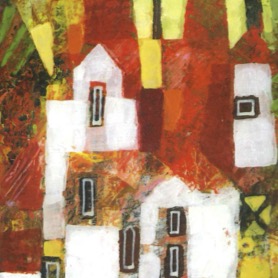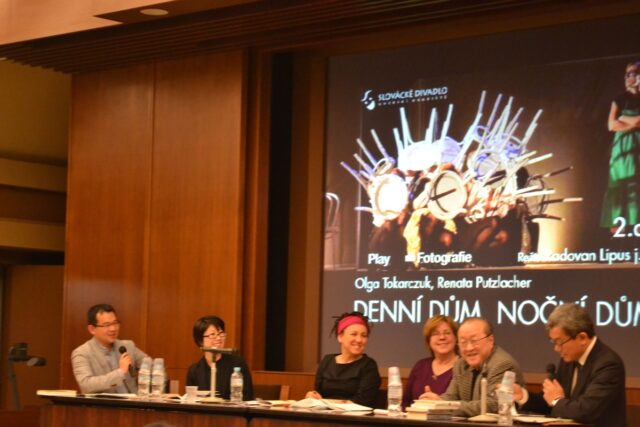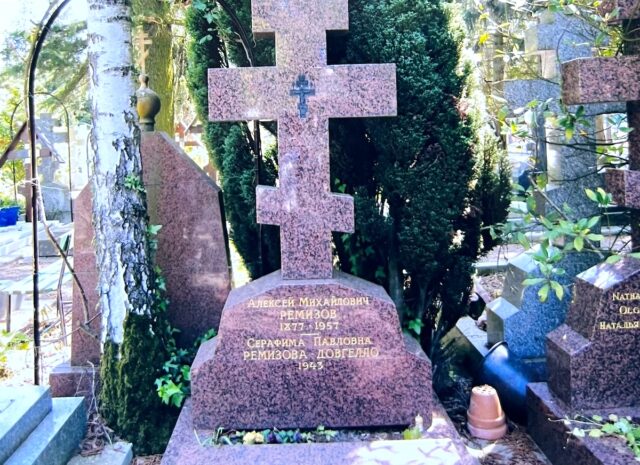Profile
- Research Subject
Russian and Polish Literature from a Comparative Literary Perspective
- Research Fields
- Russian Literature, Polish Literature, Comparative Literature
- Faculty - Division / Research Group / Laboratory
- Division of Humanities / Research Group of Cultural Representations / Laboratory of European and American Literature
- Graduate School - Division / Department / Laboratory
- Division of Humanities / Department of Cultural Representations / Laboratory of European and American Literature
- School - Course / Laboratory
- Division of Humanities and Human Sciences / Course of Linguistics and Literature / Laboratory of European and American Literature
- Related Links
Lab.letters


Research on shining stars in Slavic literature
And translations of a Nobel Prize winning author as well
Aleksey Remizov, known as “the author who paints,” was an exiled Russian author who has continued to fascinate future generations with his unique visual art. Olga Tokarczuk, who won the Nobel Prize in Literature in 2018, is not only one of Poland’s most renowned modern authors, she is also a practitioner of ecocriticism, which attempts to contribute to resolving environmental issues through the power of literature. Like stars dotted across the sky, the field of Slavic literature studies is sprinkled with authors like these two. These artists bring new perspectives, and offer multiple possibilities for personal interpretation, even inviting us to combine different disciplines such as literature and art or literature and film. For myself, a copy of Tokarczuk’s work that I happened to pick up when I was in Warsaw, has led to my being accepted into a global network of Tokarczuk translators, who have continued to be a great source of inspiration to me.
Experiences that show how immersed you are at the best research environment in Japan, both in quantity and quality
For Japanese research on the Slavic region, Hokkaido University is definitely the best in Japan, both in quantity and quality. This superlative research environment is in and of itself one of a kind, and I firmly believe it is a treasure house of reliable researchers. Holding the role of a social activist is a phenomenon not limited to Tokarczuk, and is traditionally seen among Russian and Polish literary figures in general. In fact, it is definitely not difficult to find connections with the questions and interests regarding society held by people living today. What I always strive for in class is to constantly bring to the classroom my own research results and the newest in information, to motivate everyone to have even higher levels of inspiration in their own studies. I want to weave together experiences with everyone that will make you look back and feel you have become immersed in a world where each report and each paper is exciting to write, from the bottom of your heart.
Message
My studies have focused on the culture of Russians and Polish in exile. One cannot speak on 20th century European society without mentioning the existence of exiled individuals. During the revolutions in 1917 and subsequent civil strife, Russia sent a great many exiles into the world. Scattered across the globe, artists and intellectuals continued their diverse cultural and political activities in exile, publishing Russian-language newspapers and magazines. I continue to examine the creation of culture by these individuals as cross-border, intermediate, and fluid personas, together with example of Poland, another major source of exiles.
In addition to this research, I am also involved in literary translation, focusing mainly on the works of Polish author Olga Tokarczuk. I believe translation is a joint creative effort with the author and source text, and that a good translation always relies on unseen detailed research and accurate comprehension.
Thanks to the influence of Tokarczuk, who is also a passionate social activist committed to protecting animals and the environment, I have developed an interest in the relationship of literature with nature, the society, and the environment. Thinking about the role and function literature holds in contemporary society is my recent research theme.
I entreat you to join us in reading the literature of Russia, with its deep connection to Hokkaido, and the literature of the Slavic world that extends past Russia and into Europe. I want everyone to discover their own personal themes in light of the diversity and commonality of individual phenomena in Slavic culture, and their position in the overall European milieu. And it is also my wish to provide full support in that exploration.




